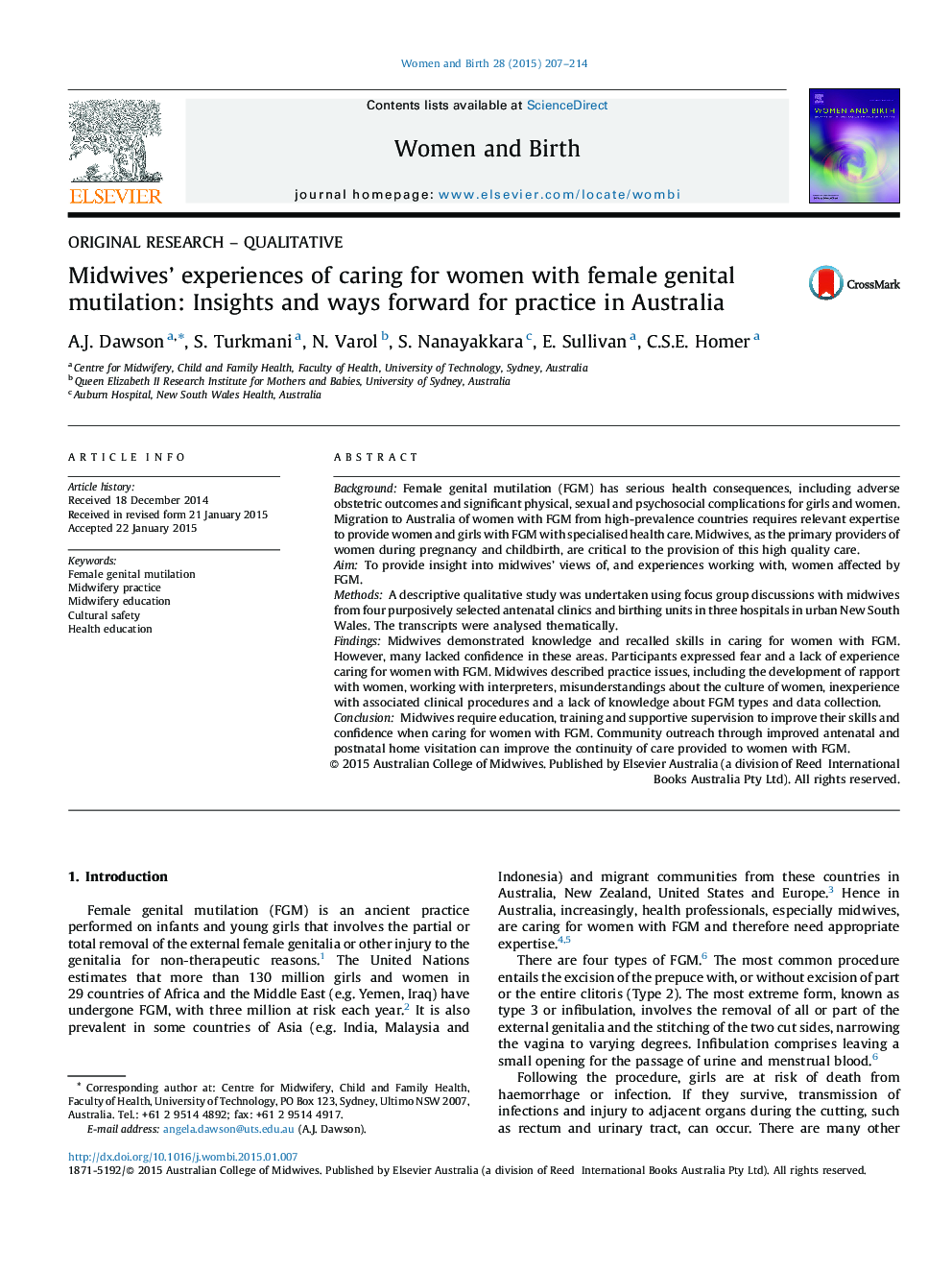| Article ID | Journal | Published Year | Pages | File Type |
|---|---|---|---|---|
| 5866158 | Women and Birth | 2015 | 8 Pages |
BackgroundFemale genital mutilation (FGM) has serious health consequences, including adverse obstetric outcomes and significant physical, sexual and psychosocial complications for girls and women. Migration to Australia of women with FGM from high-prevalence countries requires relevant expertise to provide women and girls with FGM with specialised health care. Midwives, as the primary providers of women during pregnancy and childbirth, are critical to the provision of this high quality care.AimTo provide insight into midwives' views of, and experiences working with, women affected by FGM.MethodsA descriptive qualitative study was undertaken using focus group discussions with midwives from four purposively selected antenatal clinics and birthing units in three hospitals in urban New South Wales. The transcripts were analysed thematically.FindingsMidwives demonstrated knowledge and recalled skills in caring for women with FGM. However, many lacked confidence in these areas. Participants expressed fear and a lack of experience caring for women with FGM. Midwives described practice issues, including the development of rapport with women, working with interpreters, misunderstandings about the culture of women, inexperience with associated clinical procedures and a lack of knowledge about FGM types and data collection.ConclusionMidwives require education, training and supportive supervision to improve their skills and confidence when caring for women with FGM. Community outreach through improved antenatal and postnatal home visitation can improve the continuity of care provided to women with FGM.
